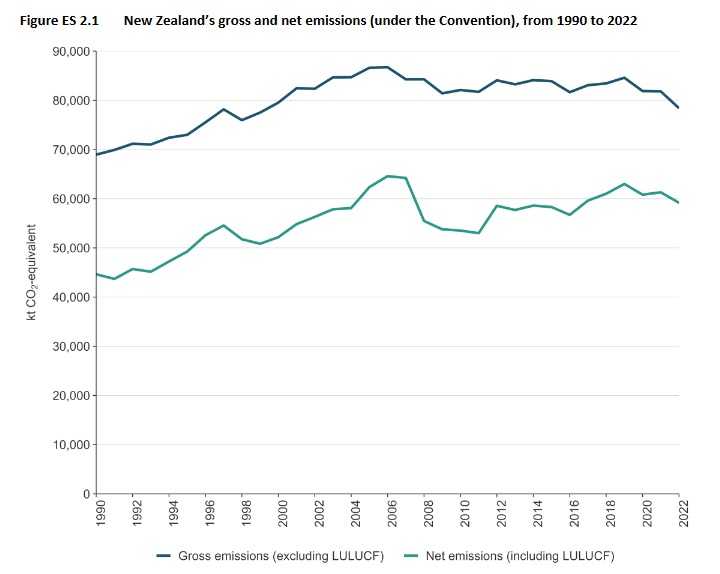Yesterday He Pou a Rangi Climate Change Commission released two key pieces of advice, on the 2036-40 emissions budget and the 2050 target. Both are statutorily required as part of the Zero Carbon Act budgeting / planning process, and both have a round of public consultation before being finalised and sent to the Minister. And the current government, stacked with foot-draggers and outright deniers, is going to hate both of them.
The first piece of advice is the Draft advice on the fourth emissions budget period (2036–2040), and whether emissions budgets one, two, and three should be revised. It recommends a sharp reduction in allowable net emissions over that budget period, to just 26.8 MTCO2-e a year (by comparison, net emissions in 2021 were 73.3 MT, and the 2030-35 budget currently allows an average 48 MT a year). Its a huge reduction, and seems very ambitious, but He Pou a Rangi thinks we can do it. They've updated their "demonstration path" to take into account changes in technology and progress so far, and things are looking much better on the emissions cutting from than they were five years ago. In particular, electrifying transport and industry is looking much easier than expected, and they think that vapourware agricultural methane reduction technology might actually exist by 2035 (the policy problem of course is getting farmers to use it). Throw in the massive amount of trees planted over the last few years, and they come to an amazing conclusion: we will hit our net-zero (except methane) and the bottom end of our 24% - 47% methane reduction goals more than a decade early. To quote Jacinda, "we can do it!"
This is an amazing conclusion, and one that should give us all hope. But its going to be deeply uncomfortable for the government, and moreso for what it implies for the 2024 Review of Aotearoa New Zealand's 2050 emissions reduction target. Because while that draws no conclusions yet about whether to amend the targets, it does find that no matter which way you look at them, they are not enough. Whether you use equal per capita emissions, ability to pay, responsibility for warming, or the right to sustainable development,
the current 2050 target is not compatible with any of these international burden sharing perspectives.
Which, combined with the news that we can hit it a decade early, naturally invites the question:
why not strengthen it? Especially when other countries have already adopted much tougher targets than ours?
National is going to hate this, because their entire approach to climate change is that it will cost too much, and its not their problem anyway, and (in the case of Luxon and the rest of his fundie friends) they want the end of the world. And here's a bunch of independent experts telling them that we can stop it, and save enormous amounts of money by doing so (check out figure 5.1 on that front), and do it faster than we thought. Their entire status-quo-protecting pretence of helplessness just falls apart.
(Its also a direct challenge to their efforts to weaken the methane target and replace it with farmer/denier "no net warming" bullshit. Despite polluting farmers crying "too hard", the Commission has found we can meet that target a decade early on current trends. Which invites the conclusion that we need to be aiming for the top end of the range, if not strengthening it, especially given that rapid cuts to methane are the best and quickest way to limit warming and damage).
And National is going to especially hate it because while the law formally leaves the final decision on both questions to the Minister, it basically requires them to accept the Commission's advice - and explain why if they don't. Any departure will result in a judicial review, and a likely do-over if those reasons are insufficient (and here its worth noting that in the ETS settings case, the courts found that "don't wanna" is not a good enough reason for ignoring the Commission). So, the government is going to be forced to adopt this.
The Key National government would have just shrugged and accepted that. Targets and budgets 15 years away? Someone else's problem. But this bunch of climate-denying, glue-sniffing radicals? They're going to throw a tanty, which will further alienate them from the public. But whatever they do, the next government can adopt these recommendations. The big problem is how much time we might lose waiting for that government to arrive.






